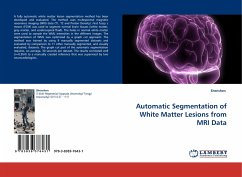Digital image processing is the use of computer algorithms to perform image processing on digital images. Digital image processing has many advantages over analog image processing. It allows a much wider range of algorithms to be applied to the input data and can avoid problems such as the build-up of noise and signal distortion during processing. Digital image processing allows the use of much more complex algorithms for image processing, and hence, can offer both more sophisticated performance at simple tasks, and the implementation of methods which would be impossible by analog means.Medical images are produced rapidly recent years. Almost every day, huge medical visual data are produced from X-ray, Computed Tomography (CT) scanner, Magnetic Resonance Imaging (MRI) scanner and so on. The images, if processed appropriately can provide very useful information to assist doctors in diagnosis.Tumor is one of the most common brain diseases, so its diagnosis and treatment have a vital importance for more than 400000 persons per year in the world (based on the World Health Organization (WHO) estimates).








